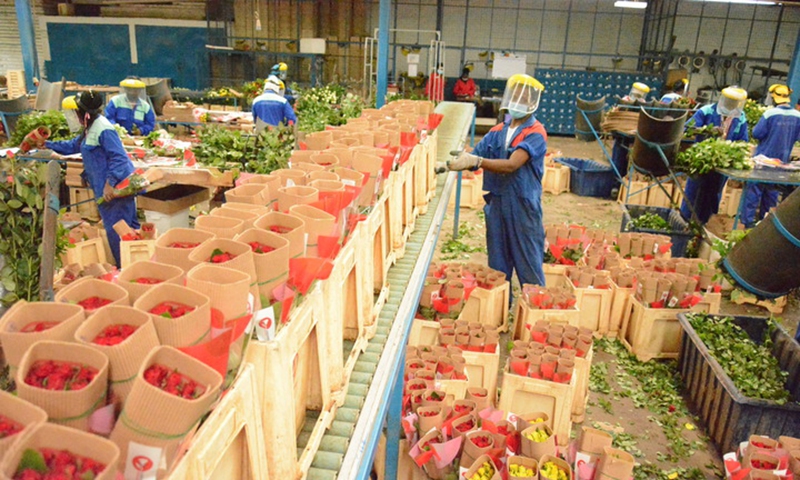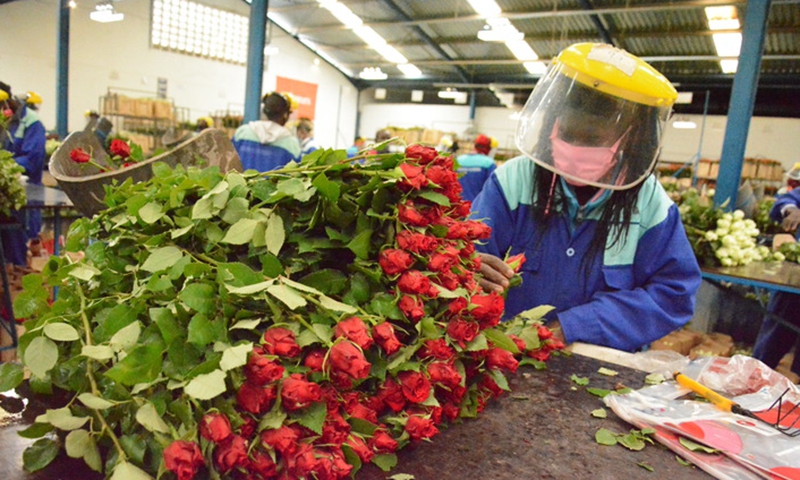
Workers prepare rose flowers for export ahead of Valentine's Day, at Maridadi Flowers farm in Naivasha, Kenya, Feb. 11, 2021.Photo:Xinhua
The ongoing Russia-Ukraine conflict has negatively impacted Kenya's flowers export, the industry lobby said on Friday.
Clement Tulezi, CEO of Kenya Flower Council (KFC) said that orders for cut flowers and ornamental plants to Russia and Ukraine have been canceled since Feb. 24 when the conflict began.
"We have not been able to ship flowers and our fear is that we could lose the market if the Russia-Ukraine crisis is not resolved," Tulezi said during a telephone interview with Xinhua in Nairobi, the Kenyan capital.
According to KFC, Kenya exported to Russia and Ukraine cut flowers and ornamentals valued at approximately 18 billion shillings (155 million US dollars) in 2021.

A worker prepares rose flowers for export ahead of Valentine's Day, at Maridadi Flowers farm in Naivasha, Kenya, Feb. 11, 2021.Photo:Xinhua
Data from the Kenya National Bureau of Statistics indicates that the east African nation exported approximately 210,000 tons of flowers worth 952 million US dollars in 2021, making the fresh produce among the top foreign exchange earner alongside tea, diaspora remittances and tourism.
Tulezi observed that over 70 percent of flower exports are sold to the European Union mostly through the Dutch flower auction.
"Our other key markets include Japan, Australia, China and the Middle East region," he added.
He noted that flower growers, who were dependent on the Russian and Ukraine markets, are seeking alternative markets in order to remain afloat.
Ojepat Okisegere, CEO of Fresh Produce Consortium of Kenya, said that flower exports to Russia were stopped when the country was excluded from the Society for Worldwide Interbank Financial Telecommunication (SWIFT) payment platform.
"Our exporters can no longer receive payments from Russia hence we cannot sell to them," Okisegere said.
He noted that the flower sector has also been affected by the Russian trade blockade as the country is also a key source of Kenya's fertilizer imports.
